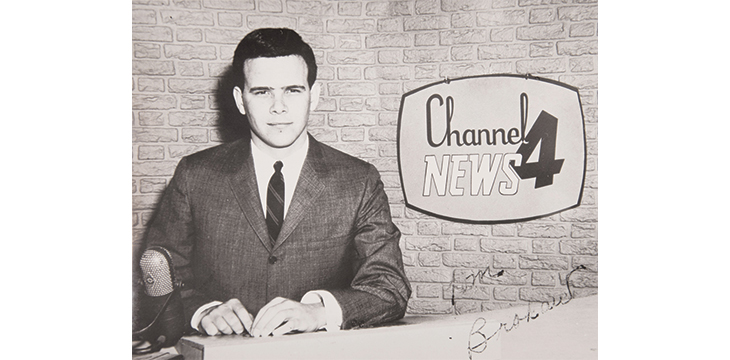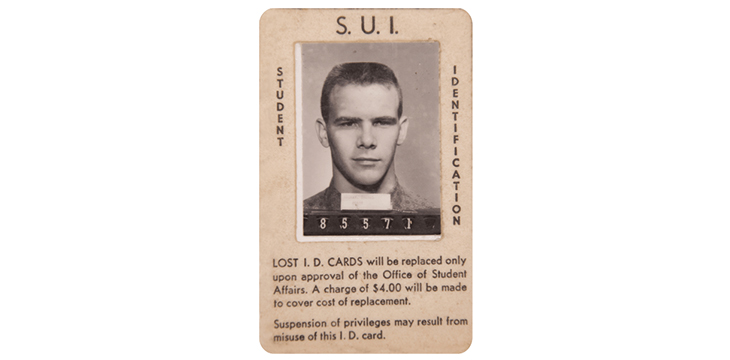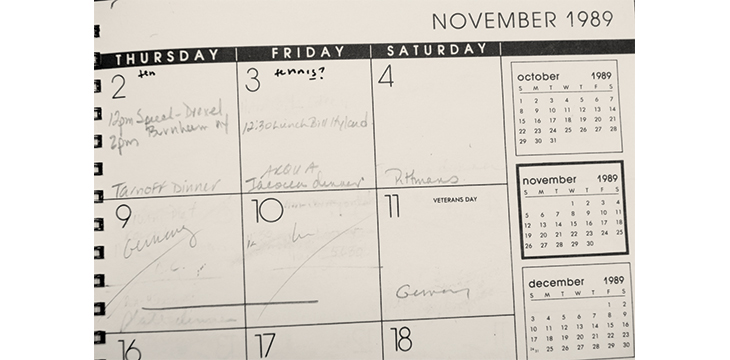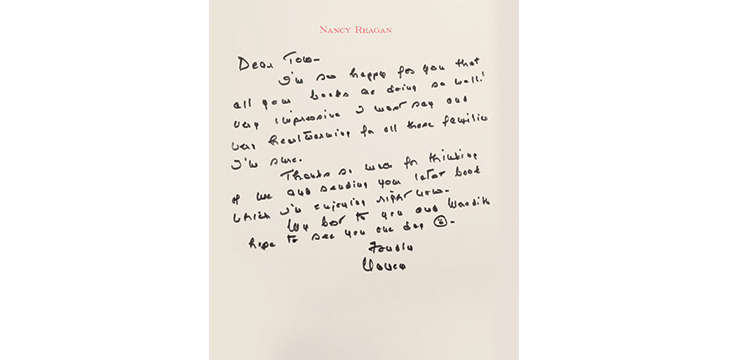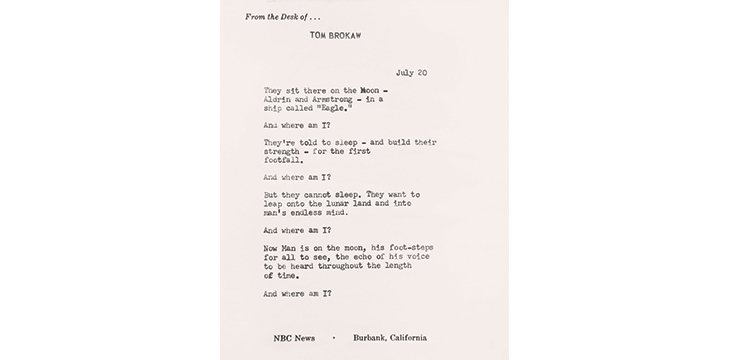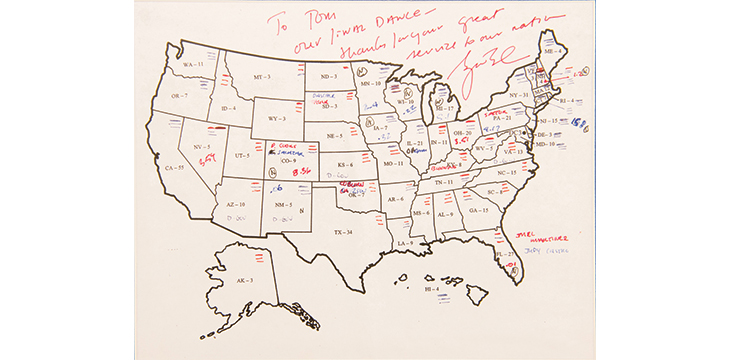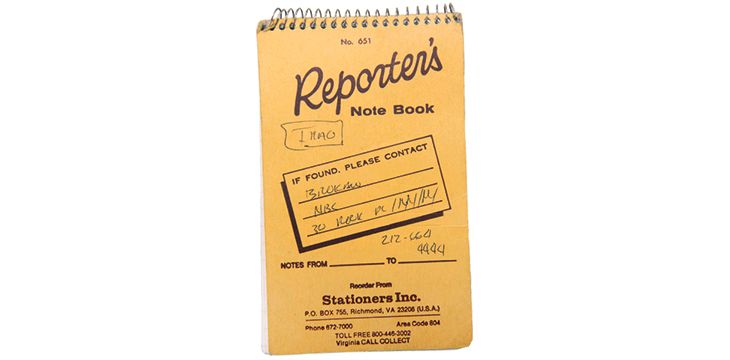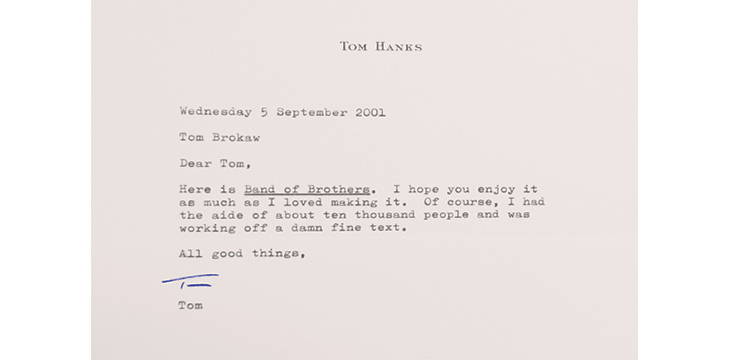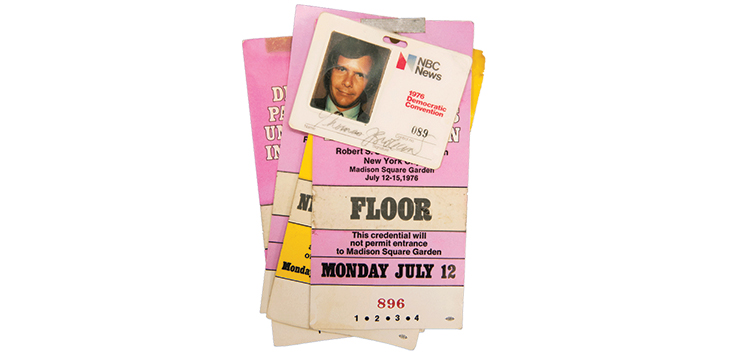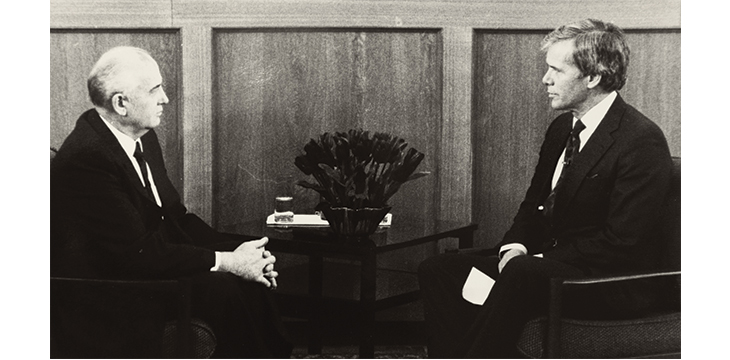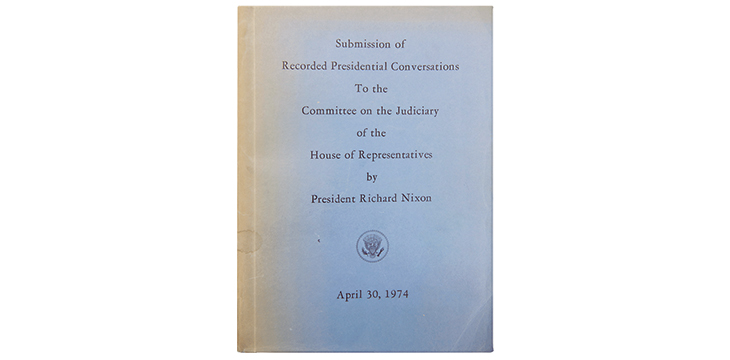Anchoring History
Tom Brokaw strolled through the UI Main Library’s Learning Commons this past January and waxed nostalgic. As Today show cameras rolled, the legendary newsman reminisced about his time in Iowa City, took photos with students, and dropped in on a class.
Brokaw, a former UI student who received an honorary degree from the university in 2010, returned to campus to film a segment for NBC about the trove of material he donated to UI Libraries’ Special Collections. He spent the morning sharing stories from the thousands of history-steeped artifacts that make up The Papers of Tom Brokaw: A Life and Career, newly open for public research. Among the items are hand-written notes from President Ronald Reagan and filmmaker Steven Spielberg, stacks of reporter’s notebooks from trips to the Soviet Union and Middle East, and interviews for his best-selling book, The Greatest Generation.
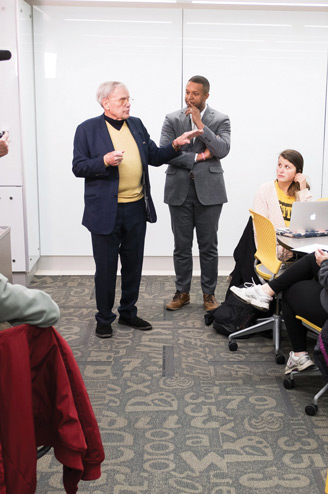 Joined by the Today show's Craig Melvin and an NBC
camera crew, Tom Brokaw talks with UI students
during his recent visit to Iowa City.
Joined by the Today show's Craig Melvin and an NBC
camera crew, Tom Brokaw talks with UI students
during his recent visit to Iowa City.
For Brokaw (10LHD), finding a permanent home for his papers was less about preserving his legacy than providing students and scholars with a new lens to view some of the most pivotal moments of the last 50 years. His collection reflects the unique on-the-ground perspective of one of the nation’s most influential broadcast journalists who covered world-shifting events like Watergate and the fall of the Berlin Wall.
“I was just in the right place at the right time,” Brokaw says of his career. “My generation saw big, big events. The collapse of the Soviet Union, the rise of China, 9/11, the end of the nuclear showdown with Moscow, the Sixties. I didn’t really lift my head up—I had my head down just running through all those events at the time, and I managed to keep enough stuff that has some value for future generations of students to see how quickly things can change.”
A South Dakota native, Brokaw was a freshman in 1958-59 in Iowa City, where he had a great time but not a great year, as he puts it. He transferred as a sophomore to the University of South Dakota before breaking into the TV news business in Sioux City and Omaha. While he didn’t graduate from the UI, Brokaw has always held a fondness for the university and its library. It was here in the Main Library, he recalls, that he dug through the upstairs stacks researching Calamity Jane, the pioneers, and the history of his home state for class projects. So when the time came to find an institution to accommodate his substantial collection, the UI was a natural fit.
“Every single time he’s come, we hear new stories about the items,” says head of Special Collections Greg Prickman, who has been working with Brokaw since the donation was announced in 2016. “We could sit with him all day for a week going through things and there would still be stories to tell. Now I’m interested to see what happens when other people come in and start telling new stories using the collection.”
While filming the Today show piece, Brokaw made an impromptu visit to a class titled Race and Ethnicity in Sport, which meets in one of the library’s high-tech TILE classrooms. Brokaw joined in the discussion, sharing his thoughts on racial issues in sports today and challenging students to do the same. For Sydney Zatz and her classmates, it was an unexpected thrill.
“As a journalism major, I truly thought it was the coolest thing,” says Zatz, a junior who works as a producer for Daily Iowan TV. “He inspires me to keep working hard.”
An exhibit featuring the newsman’s collection will open Sept. 7 in the Main Library Gallery. In the meantime, Iowa Alumni Magazine dug into Brokaw’s papers to find a few of the more notable items—as seen below.

